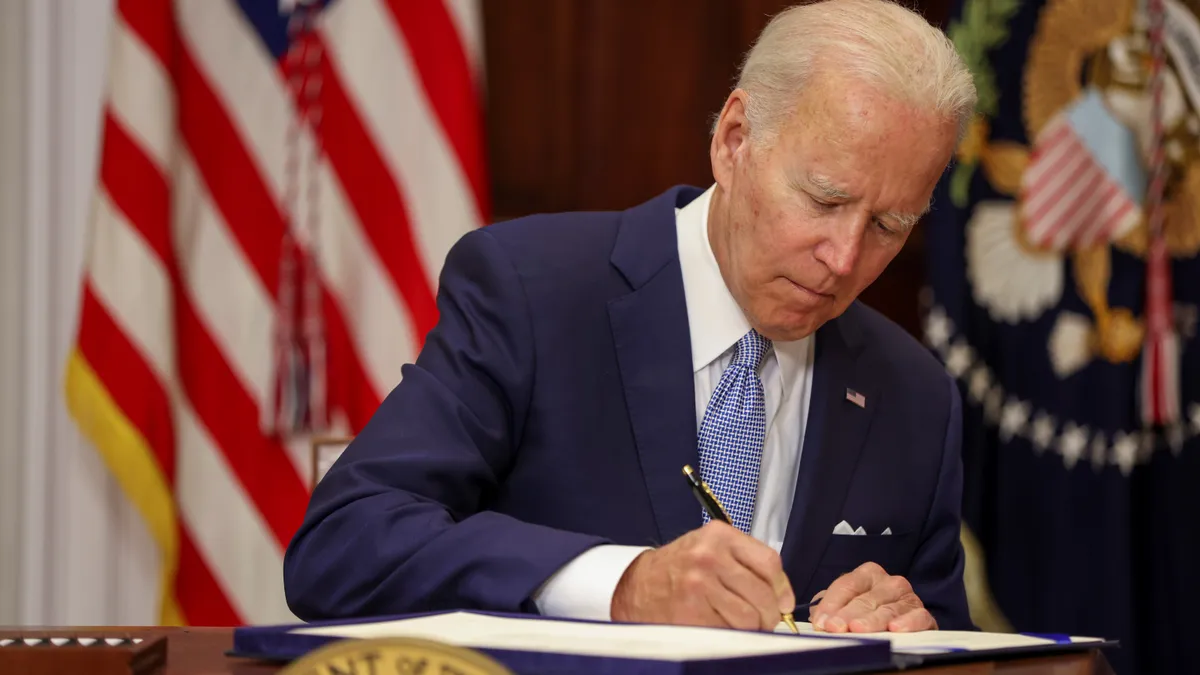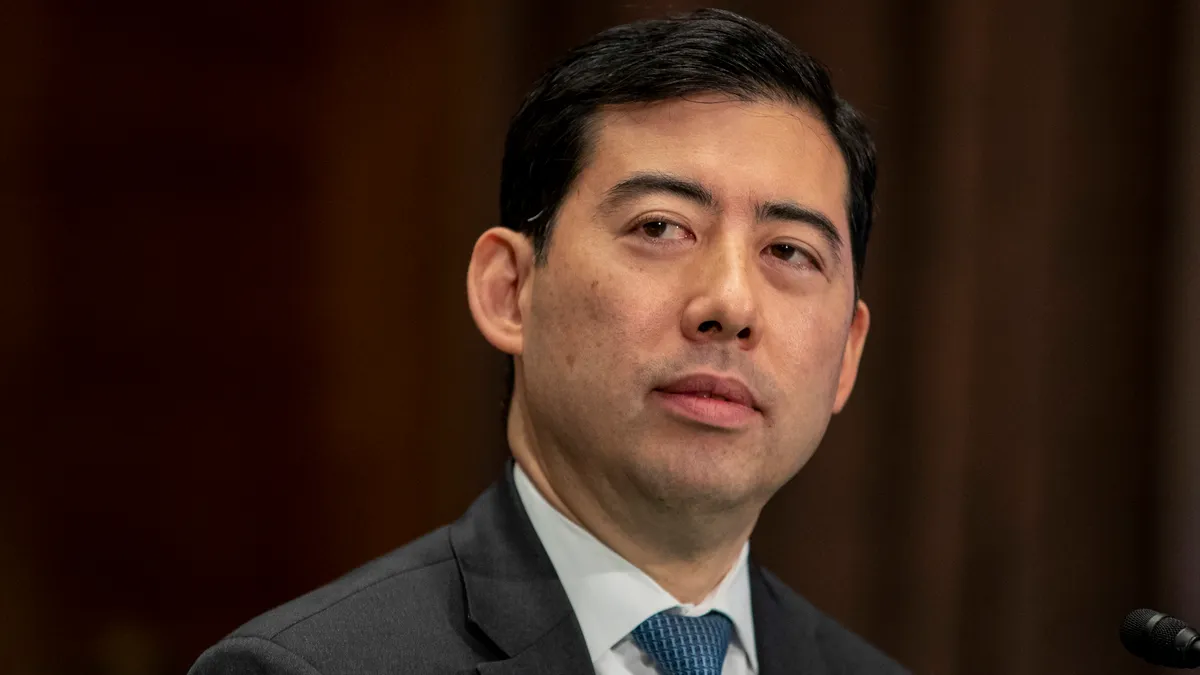One of the main predictions for Donald Trump’s second term will be an era of looser regulation across government agencies, with federal regulators seeking to reverse President Joe Biden’s approach.
“The business and regulatory climate is going to change significantly,” said Jesse Panuccio, a partner at Boies Schiller Flexner and a former acting associate attorney general under Trump.
He spoke Thursday at a Federalist Society panel discussion on what the Trump administration will mean for business, moderated by Walmart’s chief legal officer, Rachel Brand. Iowa Attorney General Brenna Bird and Martine Cicconi, a partner at Akin Gump Strauss Hauer & Feld, also joined the discussion.
“Traditionally, Republican administrations take the view that the best use of government power is its non-use,” Panuccio said. However, he noted, Trump’s populist MAGA movement rejects the laissez-faire stance of prior GOP presidents such as Ronald Reagan, George H. W. Bush and George W. Bush because that approach “didn’t result in any lasting gains.”
Cicconi, a former special counsel in the Office of the White House Counsel, expects a “dynamic” regulatory environment over the next year. Following Trump’s election, she said the primary question she hears from corporate clients regards the fate of regulatory rules under Biden that remain in various stages of implementation.
These regulations tend to fall into four categories, Cicconi said.
Rules under consideration, not yet finalized. These will probably be subject to a regulatory pause by the incoming administration on Jan. 20.
Rules that are passed before Biden’s term ends, and within the past 60 days will be subject to the Congressional Review Act, Cicconi said. The next Congress, under Republican control in January, is likely to enjoin Biden rules with a joint resolution Trump would sign.
Finalized agency rules that are still wending their way through litigation, including some that have been enjoined. The Trump administration is likely to stop defending many of the Biden rules, which would effectively end them. However, “in many of those challenges there are intervenors with authority to defend the rule going forward,” Cicconi noted.
That means rules that have survived court challenges and avoided being enjoined “will stay at least on the books” pending further administration action, she said.
This situation creates a practical dilemma for many corporate legal executives: “Do you follow a rule that’s not being enforced but is still on the books?” she said. If such rules are already enjoined by a court, they are unlikely to survive because Trump regulators will produce a new rule to address the matter.
“I think there will be a lot more litigation,” Cicconi predicted. “It won’t be as simple as (just) ‘We’re going to stop defending the rule.’ Beware of those cases that have intervenors.”
Rules already in force. The new administration will tackle these but find a longer timeframe for doing so, she said, as the Administrative Procedure Act requires agencies to issue a notice and comment period for undoing prior rules. Attorneys general in states that support a particular Biden-era rule will legally challenge efforts to abolish it. “Expect standard APA challenges by Democrats and blue states and others,” Cicconi said.
Meanwhile, Trump administration regulators can also expect legal challenges for any new rules.
AGs in so-called “blue” states and advocacy organizations “will become friends with the major questions doctrine and the death of Chevron,” Cicconi said, referring to the Supreme Court’s Loper Bright Enterprises ruling, which ended judicial deference to an agency’s interpretation.
“We’ll all get really good at switching sides” with regard to Chevron deference, she quipped.
One difference between Trump’s first and second terms is the makeup of several of the federal appellate circuits, Panuccio said, with the San Francisco-based Ninth Circuit “no longer so predictable” in terms of its rulings.
“My own prediction is we’re going to see a movement to the courts on the First and Fourth circuits, which are predictably more left-leaning,” he said. That means Massachusetts could play a larger role in litigation against Trump “and San Francisco and Seattle may recede a little bit,” Panuccio said.



















